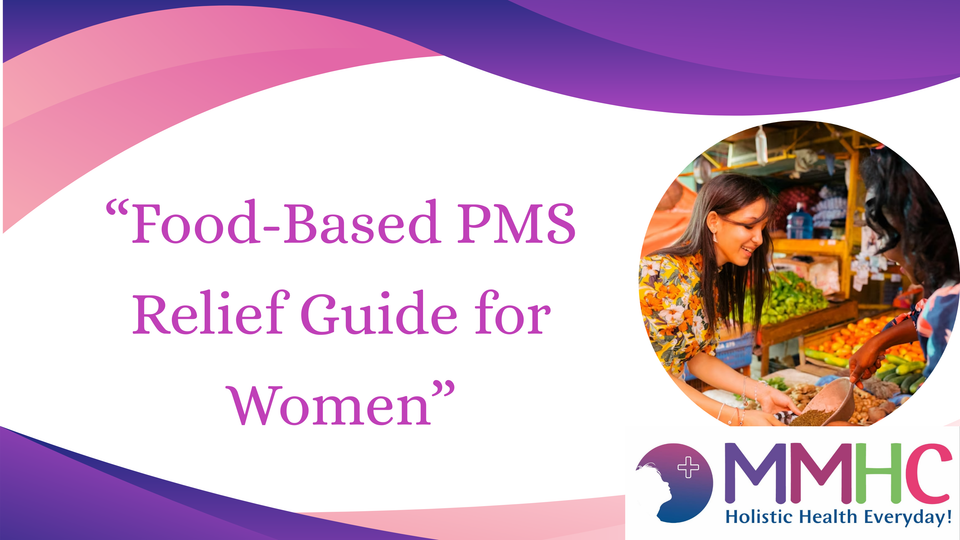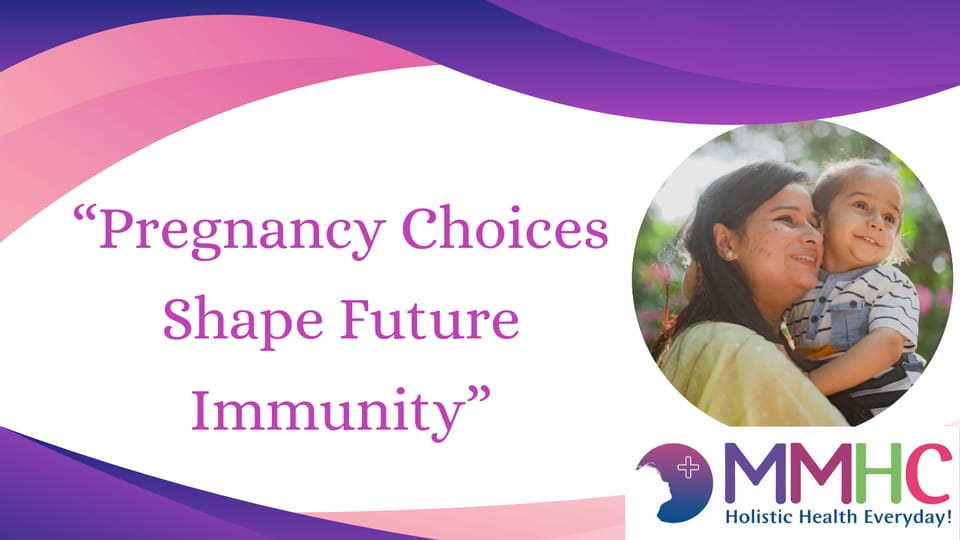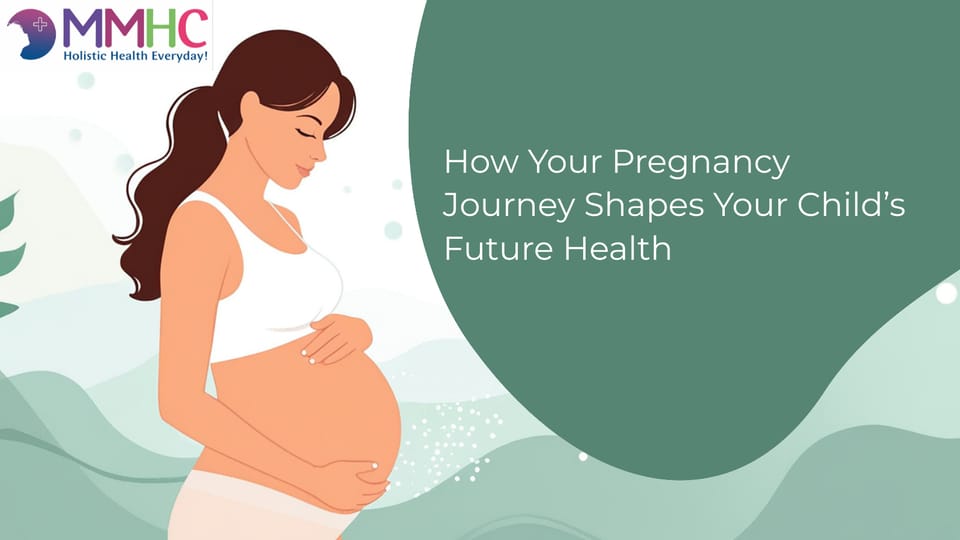Nurturing Immunity from Within: How Your Pregnancy Journey Shapes Your Child’s Future Health ?
As urban parents in bustling cities like Mumbai, Bangalore, and Pune, we often find ourselves navigating a world filled with new challenges for our children.
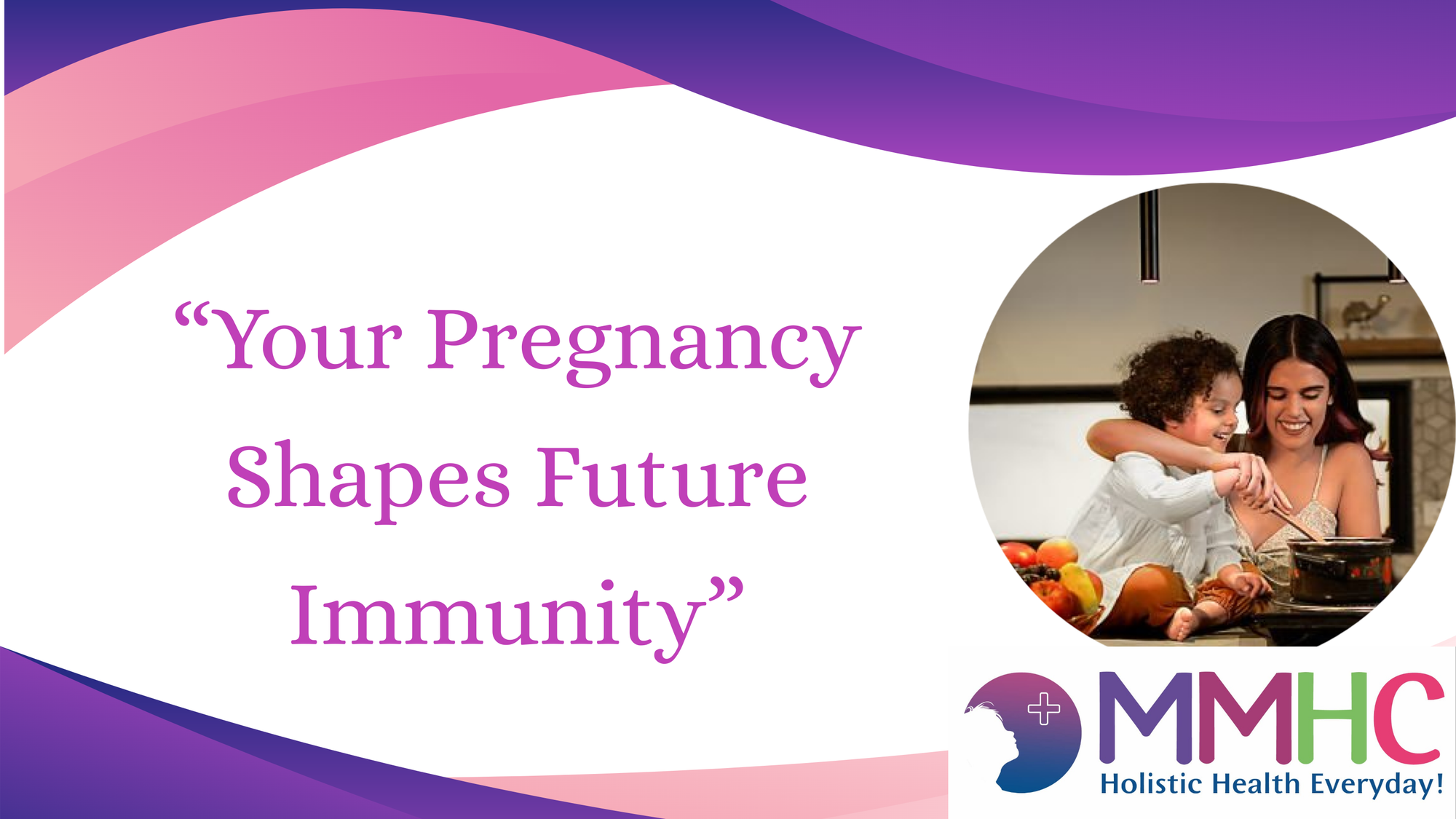
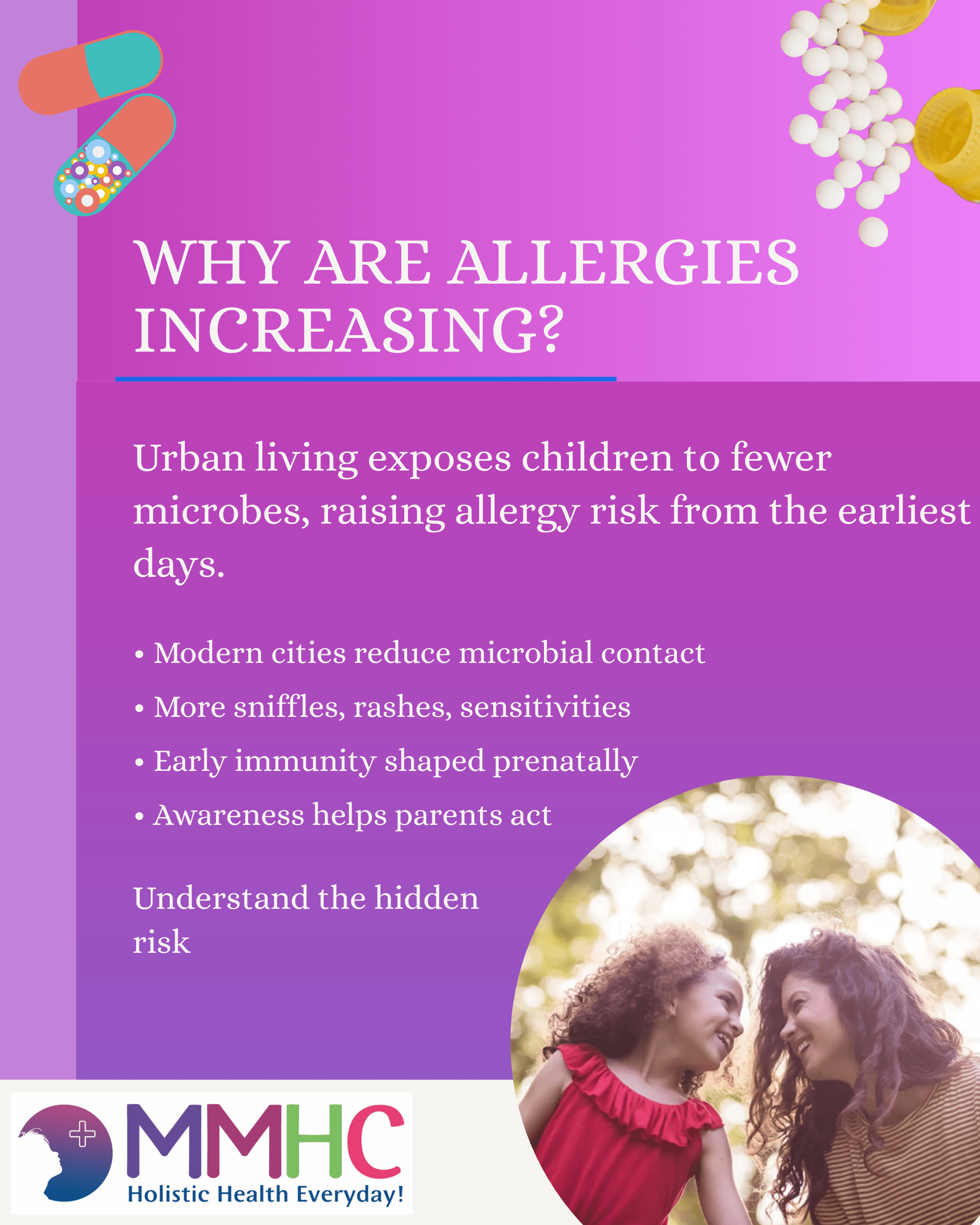
As urban parents in bustling cities like Mumbai, Bangalore, and Pune, we often find ourselves navigating a world filled with new challenges for our children. One common concern that frequently arises is the increasing prevalence of allergies from persistent sniffles and skin rashes to more severe food sensitivities. It’s heartbreaking to see our little ones struggle. What if the foundations of your child’s immune system — and their susceptibility to allergies — are significantly influenced even before they take their first breath? (The Impact of Maternal Gut Microbiota during Pregnancy on Fetal Gut–Brain Axis Development and Life‑Long Health Outcomes)
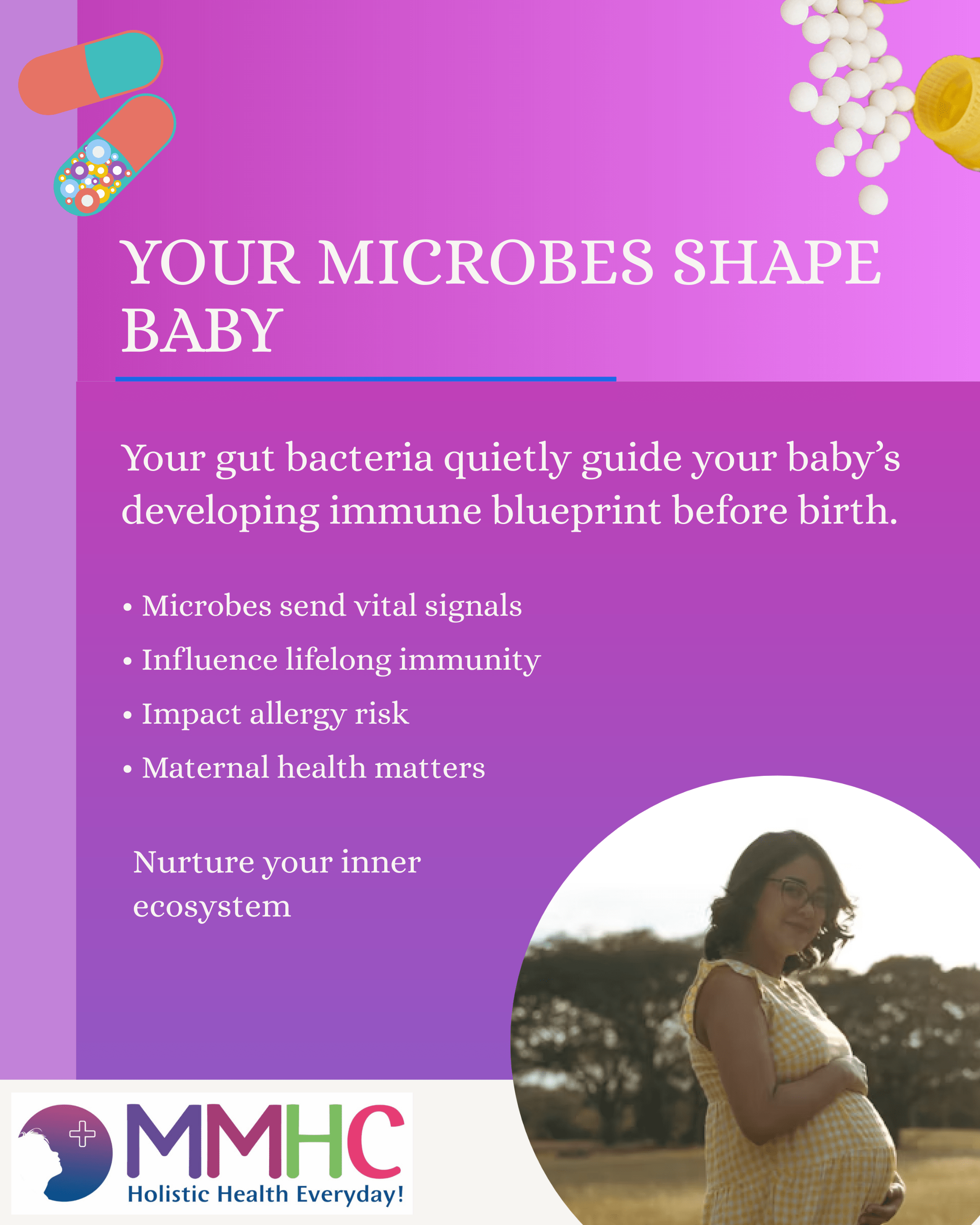
Recent research is shedding light on a fascinating connection: the profound impact of a mother’s environment during pregnancy on her child’s developing immunity. This isn't just about what you eat or how active you are; it’s about the invisible world of microbes that surrounds and inhabits you and how it communicates with your baby. Understanding this intricate relationship can empower expectant mothers to make informed choices that could shape their child’s health for a lifetime.
The Invisible Architects: How Maternal Environment Shapes Fetal Immunity

The concept that early life experiences can have long‑lasting health consequences is captured by the “developmental origins of health and disease” (DOHaD) hypothesis. At its core lies epigenetics the idea that the same genes can be turned on or off depending on environmental signals, without changing the underlying DNA. One of the most critical environmental modulators is the maternal gut microbiota — the trillions of microorganisms resident in the mother’s digestive tract — which can influence fetal immune development through metabolites, immune signals, and even microbial antigens. (The Impact of Maternal Gut Microbiota during Pregnancy …)
The Developing Immune System: A Prenatal Education
The fetal gut — once considered sterile — may in fact host specific, limited immunomodulatory microbes as early as 11–14 weeks of gestation. These early microbial encounters act like a primer, giving the fetal immune system early exposure to microbial antigens and aiding in immune tolerance programming.

By the 13th gestational week, memory T cells — crucial components of the immune system — are abundant in the fetal intestine, capable of memory formation and responding to microbial stimuli. (The Impact of Maternal Gut Microbiota during Pregnancy …)
Additional immune pathways influenced by maternal microbial signals include:

- Th1 / Th2 balance: Allergic diseases often correlate with a Th2‑skewed immune profile. Microbial exposures can promote Th1 and Th17 responses, thereby countering Th2 dominance. (The Role of Probiotics in Preventing Allergic Disease)
- Regulatory T cells (Tregs): Microbial signals, especially from beneficial bacteria, can induce Tregs which promote immune tolerance and reduce allergic inflammation. (Prevention of IgE‑Mediated Food Allergy: Emerging Strategies…)

- Maternal microbial metabolites like acetate: Higher maternal serum acetate, often from bacteria such as Prevotella copri, has been linked to a decreased risk of food allergy in the offspring. (Maternal carriage of Prevotella during pregnancy …)
The Power of Probiotics and Nature’s Classroom
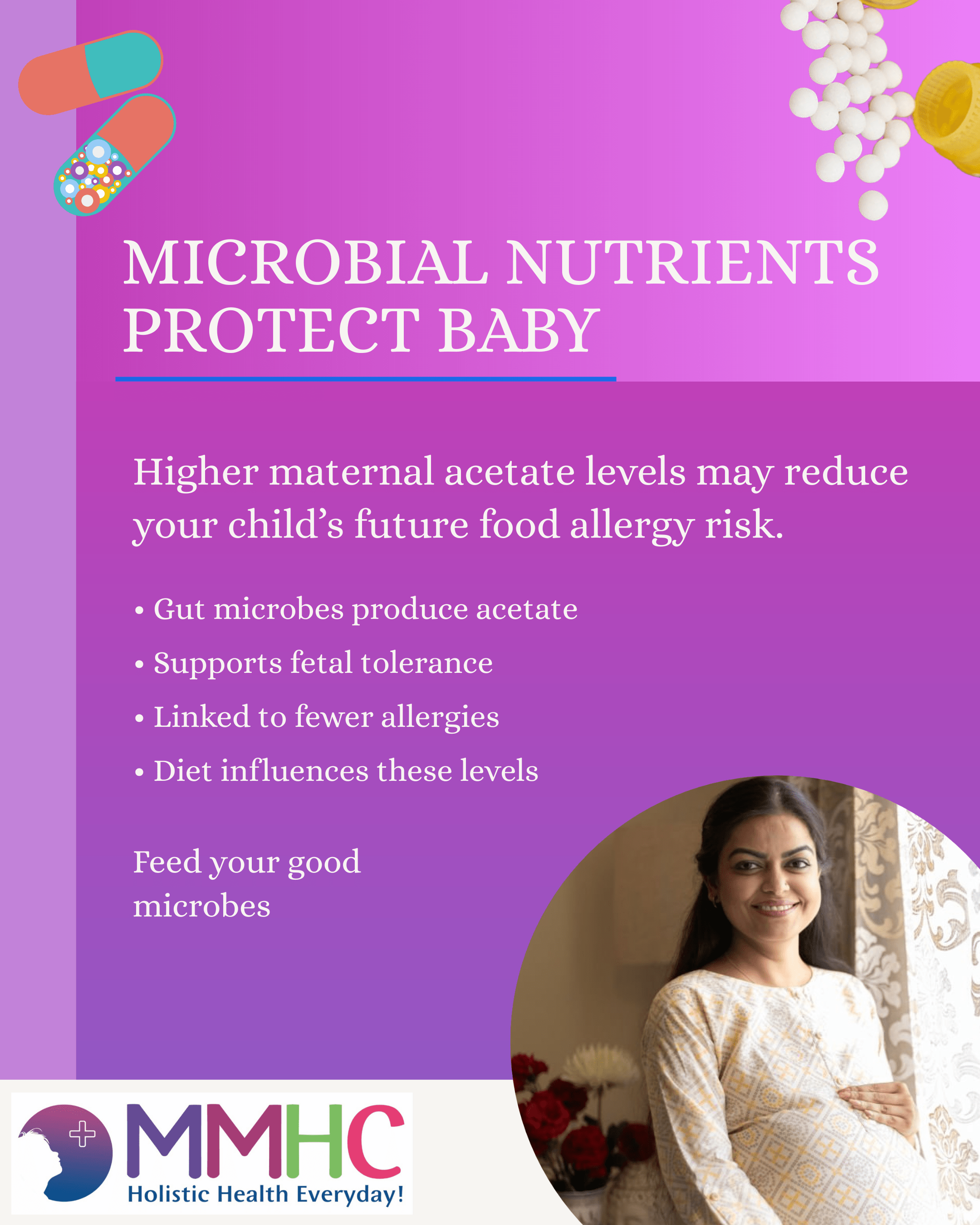
Emerging evidence suggests that specific interventions and exposures can beneficially influence prenatal immune programming. Below are key findings and their limitations:
- Probiotic supplementation during pregnancy: The “Probiotics in Pregnancy (PIP)” line of research explored maternal supplementation with Lactobacillus rhamnosus HN001. Earlier mother + infant supplementation studies showed a reduction in eczema, but subsequent trials with maternal-only supplementation failed to show a significant effect. (Maternal supplementation alone with Lactobacillus rhamnosus HN001 during pregnancy …) (The Role of Probiotics in Preventing Allergic Disease)
- Farm / microbial diversity exposure: Large epidemiological studies, such as PARSIFAL and GABRIELA, consistently show lower asthma and allergy rates in children raised in farm environments — exposures to a wider diversity of environmental microorganisms is inversely correlated with asthma risk. (Exposure to Environmental Microorganisms and Childhood Asthma) (Exposure to environmental microorganisms and childhood asthma (PubMed))
These findings underscore that maternal gut microbiota and environmental microbial exposures are not just passive passengers — they are active participants in shaping your child’s lifelong immune health.
Practical Steps for Expectant Mothers: Nurturing Your Child’s Immunity

While the science is still evolving, the following strategies may help support the healthy development of your child’s immune foundation. Always consult your healthcare provider before making changes.
- Embrace safe microbial diversity:
• Spend time outdoors in green spaces (parks, gardens, soil contact) • Consider having pets (especially dogs) — associated with increased household microbial diversity • Include traditional fermented foods (dahi, idli, dosa, pickles) in the diet (Supporting evidence via general microbiome reviews) - Probiotics during pregnancy (with medical guidance):
While general probiotic recommendations for allergy prevention are not yet definitive, some studies suggest benefits for eczema. If considering supplementation, talk with your obstetrician about strain specificity, timing, and safety. (Prevention of IgE‑Mediated Food Allergy: Emerging Strategies…) - Mode of delivery & early practices:
• Vaginal birth (when medically feasible) supports transfer of maternal vaginal and gut microbes. • Breastfeeding supports growth of beneficial bacteria (e.g. Bifidobacterium) and delivers immune‑modulating factors (Prevention of IgE‑Mediated Food Allergy: Emerging Strategies…)
Beyond Nutrition: A Holistic View of Prenatal Care
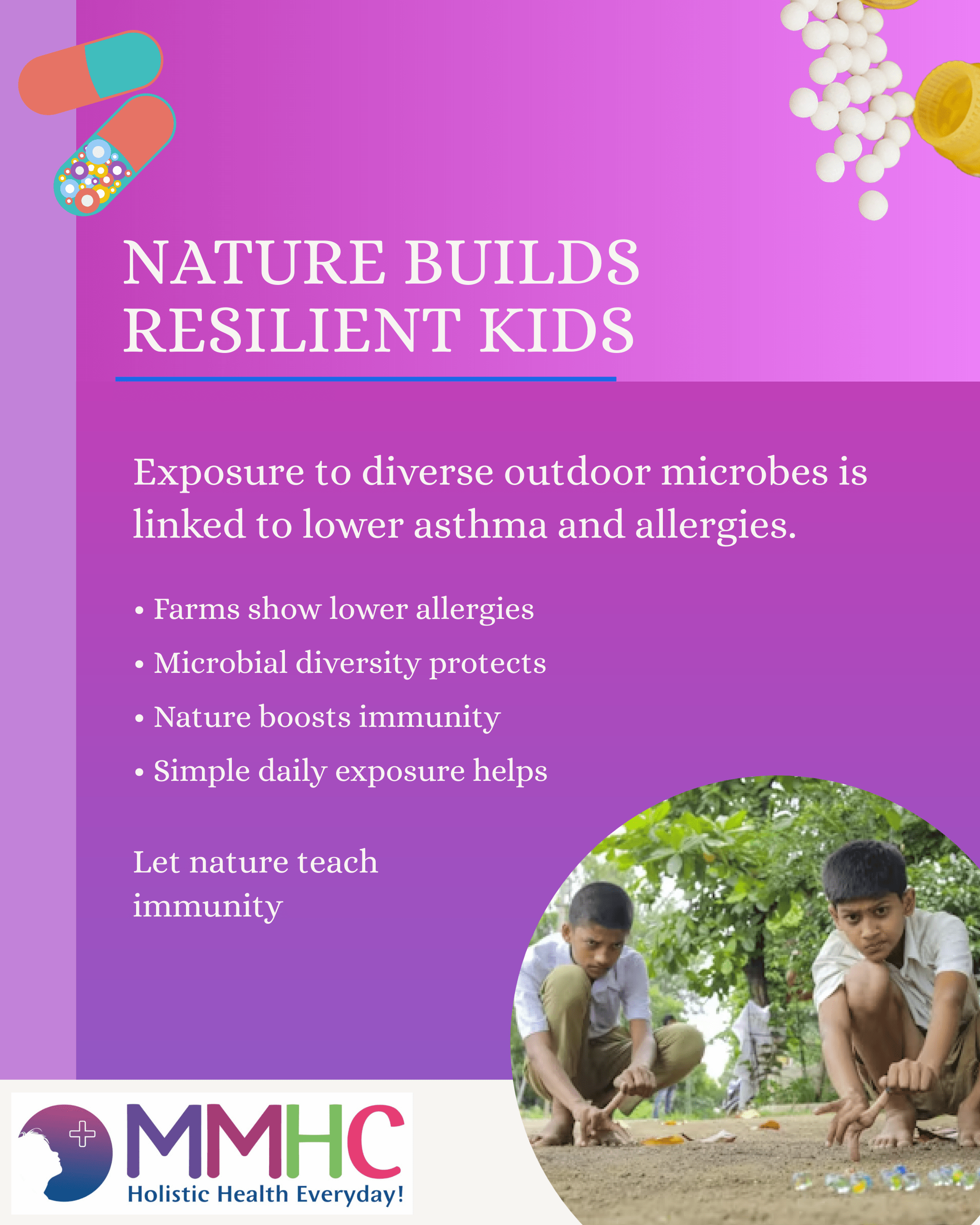
This emerging understanding emphasizes that prenatal care extends beyond physical health and nutrition. It encompasses the entire maternal internal and external environment as a critical influence on your child’s long-term health. Every pregnancy is unique — personalized advice and integrative care matter.
Actionable Tips for a Healthier Future
- Diversify your diet with whole foods, fiber, and traditional fermented foods (e.g. dahi, kanji) — support a robust maternal microbiome. (Gut Microbiota and Food Allergy: A Review …)
- Spend time in green spaces — even short exposures to nature can introduce microbial diversity.
- Discuss probiotics with your physician — choose evidence‑informed strains and timing.
- If appropriate, prioritize vaginal delivery to support microbial transfer.
- Breastfeed when possible — breast milk provides nutrients and immune factors beneficial for your baby’s gut and immune system.
Your Journey, Your Child’s Health
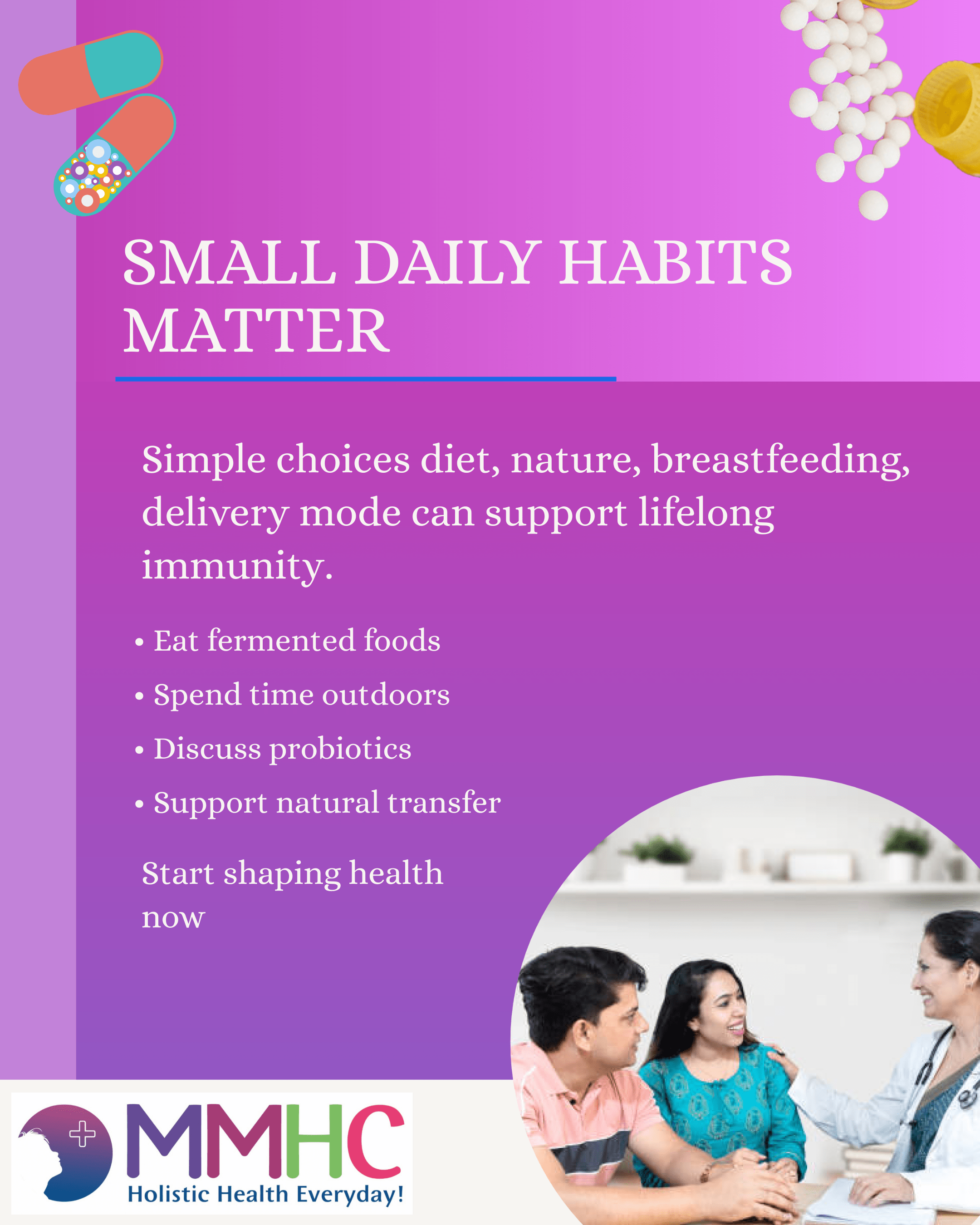
The rising tide of allergies in urban centers is a concern many families share. The good news? You have meaningful influence over your child’s immune trajectory. By understanding the profound connection between your prenatal environment and your baby’s developing immune system, you can make evidence‑guided choices that foster resilience.
Don’t let the worry of allergies overshadow the joy of pregnancy. Instead, embrace the opportunity to shape your child’s future health. Imagine a world where your child can explore freely with a strong, balanced immune system — less burdened by allergic reactions. That future starts with what you do today.
We encourage you to consult with the experts at MMHC. Our team is committed to a holistic, personalized prenatal and pediatric approach integrating the latest research on maternal health, gut health, and epigenetic influence. Let us support you in creating a strong foundation for your child’s lifelong health.
Disclaimer: This blog post is for educational purposes only and should not be considered medical advice. Always consult a qualified healthcare provider before making any health decisions.
